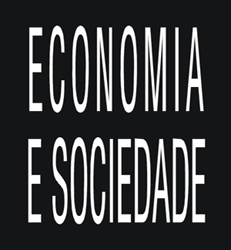Abstract
This article aims at analyzing, preliminary, the unconventional monetary policies adopted by the Federal Reserve from 2020 to March 2021, to contain the recessive effects of the global public health crisis caused by the pandemic of the coronavirus. For this purpose, since most of the current monetary measures were implemented during the 2007/08 financial crisis, a comparative was sought, as well as a counterpoint, given that the origins of the two crises are different. In the subprime crisis there was contagion from the financial sector to the real economy, whereas in the current crisis the reverse occurs, that is, a sharp drop in demand and offer that spreads to the financial system. We support that Fed benefited from the experience of unconventional monetary policies implemented since 2008, with the difference that, while in the first case such policies were gradually adopted after the 2008 financial crisis, in the case of the “coronavirus” crisis, they were implemented immediately to anticipate the effects of the crisis on the banking sector and the real side of the economy.
Keywords
Unconventional monetary policy; Federal Reserve; Coronavirus crisis

 Thumbnail
Thumbnail
 Thumbnail
Thumbnail
 Thumbnail
Thumbnail
 Thumbnail
Thumbnail
 Thumbnail
Thumbnail
 Thumbnail
Thumbnail
 Thumbnail
Thumbnail
 Thumbnail
Thumbnail
 Thumbnail
Thumbnail
 Thumbnail
Thumbnail
 Thumbnail
Thumbnail
 Thumbnail
Thumbnail
 Fonte:
Fonte: Fonte: U.S. Bureau of Labor Statistics, Mar. 2021.
Fonte: U.S. Bureau of Labor Statistics, Mar. 2021.
 Fonte:
Fonte:  Fonte: FRED: Economic Date, Sept. 2022.
Fonte: FRED: Economic Date, Sept. 2022.
 Fonte: Nasdaq, Mar. 2021.
Fonte: Nasdaq, Mar. 2021.
 Obs.: (*) inclui empréstimos e títulos de dívida. Fonte:
Obs.: (*) inclui empréstimos e títulos de dívida. Fonte: (*) Desde a crise financeira de 2007/08, o Fed passou a adotar um limite inferior e um superior para a taxa básica de juros. Tal mudança ocorreu em 16 de dezembro de 2008 e perdura até o período atual. Fonte: Elaboração dos autores com base em dados do
(*) Desde a crise financeira de 2007/08, o Fed passou a adotar um limite inferior e um superior para a taxa básica de juros. Tal mudança ocorreu em 16 de dezembro de 2008 e perdura até o período atual. Fonte: Elaboração dos autores com base em dados do  Fonte: Elaboração dos autores com base em dados do Board of Governors of the
Fonte: Elaboração dos autores com base em dados do Board of Governors of the  Fonte: Elaboração dos autores com base em dados do
Fonte: Elaboração dos autores com base em dados do  Fonte: Elaboração dos autores com base em dados do Board of Governors of the Fed (2021).
Fonte: Elaboração dos autores com base em dados do Board of Governors of the Fed (2021).

 Fonte: Elaboração dos autores com base em dados do CRFB (2021).
Fonte: Elaboração dos autores com base em dados do CRFB (2021).